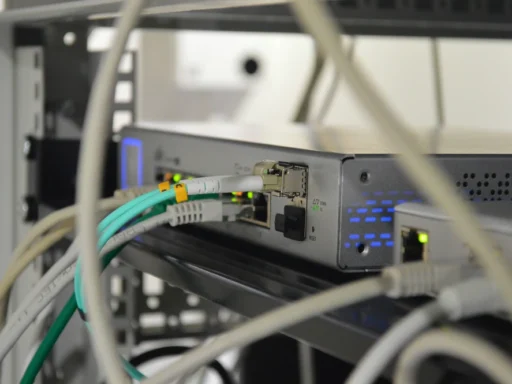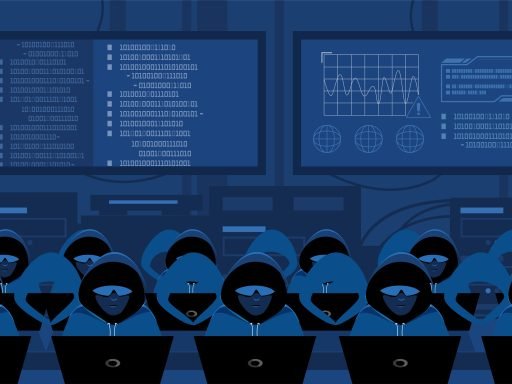Introduction
Cybersecurity is a dynamic and rapidly growing field that offers a variety of career paths, competitive salaries, and the opportunity to work on the frontlines of digital defense. As cyber threats become increasingly sophisticated, the demand for skilled professionals in this field continues to grow. This guide provides a comprehensive overview for beginners looking to enter the cybersecurity industry, covering essential skills, certifications, potential career paths, salary expectations, and the latest trends in the field.
Why Choose a Career in Cybersecurity?
Cybersecurity is not just about preventing cyberattacks; it’s about safeguarding data, ensuring privacy, and maintaining the integrity of digital systems. With the rise of digital transformation across industries, cybersecurity professionals are more crucial than ever. The field is known for its job security, high earning potential, and the satisfaction that comes with protecting critical infrastructure and sensitive information.
Essential Skills for Cybersecurity
Technical Skills:
- Network Security: Understanding how to secure and monitor computer networks is fundamental. This includes knowledge of firewalls, VPNs, intrusion detection systems (IDS), and encryption technologies.
- Operating Systems and System Administration: Proficiency in Linux, Windows, and other operating systems is crucial, as these are often the targets of attacks.
- Programming: Knowing languages like Python, C++, and JavaScript can help in scripting, automating tasks, and understanding vulnerabilities in code.
- Cybersecurity Tools: Familiarity with tools like Metasploit, Wireshark, Burp Suite, and SIEM (Security Information and Event Management) systems is important for tasks like penetration testing and threat analysis.
Soft Skills:
- Problem-Solving: Cybersecurity is a field that requires continuous problem-solving, especially in responding to incidents and anticipating threats.
- Communication: Clearly communicating findings and strategies to both technical and non-technical stakeholders is essential.
- Teamwork: Collaborating with IT teams, management, and sometimes law enforcement is a routine part of the job.
Key Certifications to Start Your Career
Certifications are vital in cybersecurity as they validate your skills and knowledge. Here are some key certifications to consider:
- CompTIA Security+: A foundational certification that covers essential principles for network security and risk management.
- Certified Information Systems Security Professional (CISSP): Ideal for more advanced professionals, CISSP covers a wide range of cybersecurity topics and is recognized globally.
- Certified Ethical Hacker (CEH): Focuses on the skills needed to identify and exploit vulnerabilities legally.
- Certified Information Security Manager (CISM): Suitable for those interested in managing and governing enterprise information security.
- Google Cybersecurity Professional Certificate: An entry-level program that can help beginners understand fundamental cybersecurity concepts and practices.
Career Paths in Cybersecurity
- Cybersecurity Analyst: These professionals are responsible for monitoring networks, detecting security incidents, and implementing defense strategies.
- Entry-level Salary: $75,000 – $104,000
- Penetration Tester/Ethical Hacker: Pen testers simulate attacks on networks and systems to identify weaknesses before they can be exploited by malicious hackers.
- Entry-level Salary: $90,000 – $120,000
- Security Consultant: Consultants advise organizations on their security posture and help implement robust security strategies.
- Mid-level Salary: $110,000 – $160,000
- Incident Responder: These experts are on the front line during a cyberattack, responsible for mitigating damage and recovering compromised systems.
- Mid-level Salary: $80,000 – $120,000
- Security Architect: Architects design and implement secure network solutions to protect against attacks.
- Senior-level Salary: $150,000 – $200,000
Regional Considerations
The demand for cybersecurity professionals and the types of certifications required can vary by region. In the U.S., for example, certifications like CISSP and CEH are highly valued, while in Europe, GDPR compliance and ISO/IEC 27001 certifications might be more critical. It’s essential to research the specific requirements and job markets in your region to tailor your education and certification path accordingly.
Gaining Experience and Breaking into the Field
Hands-On Practice:
- Setting up a home lab or participating in Capture-The-Flag (CTF) competitions can help you gain practical experience.
- Engaging in open-source projects or volunteering for cybersecurity initiatives can also provide valuable real-world exposure.
Internships and Entry-Level Roles:
- Start with internships or junior positions to build your experience. Examples include roles like SOC Analyst or IT Support Specialist with a security focus.
- Look for opportunities in related fields, such as IT support, where you can transition into cybersecurity roles.
Continuous Learning and Networking
Cybersecurity is a dynamic field that requires continuous learning. Stay updated with the latest trends, threats, and technologies through online courses, webinars, and industry certifications. Networking with professionals through conferences, LinkedIn groups, or cybersecurity communities can also open doors to new opportunities and mentorship.
Latest Trends in Cybersecurity
As cybersecurity continues to evolve, several emerging trends are shaping the future of the field:
- Artificial Intelligence (AI) in Cybersecurity: AI and machine learning are increasingly being used to detect and respond to cyber threats more efficiently.
- Cloud Security: With the shift to cloud computing, securing cloud environments has become a top priority.
- Zero Trust Architecture: The zero-trust model, which assumes that threats could come from within the network as well as outside, is gaining traction.
- Regulatory Compliance: As data privacy laws become stricter worldwide, compliance with regulations like GDPR and CCPA is more critical than ever.
Conclusion
Starting a career in cybersecurity requires a combination of technical skills, certifications, and hands-on experience. By continuously learning and networking, you can build a successful career in this exciting and vital field. Whether you’re interested in defending against attacks, managing security protocols, or consulting on best practices, cybersecurity offers diverse opportunities for those willing to commit to the challenge.












